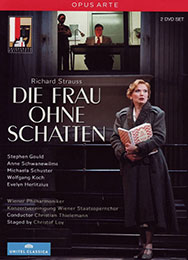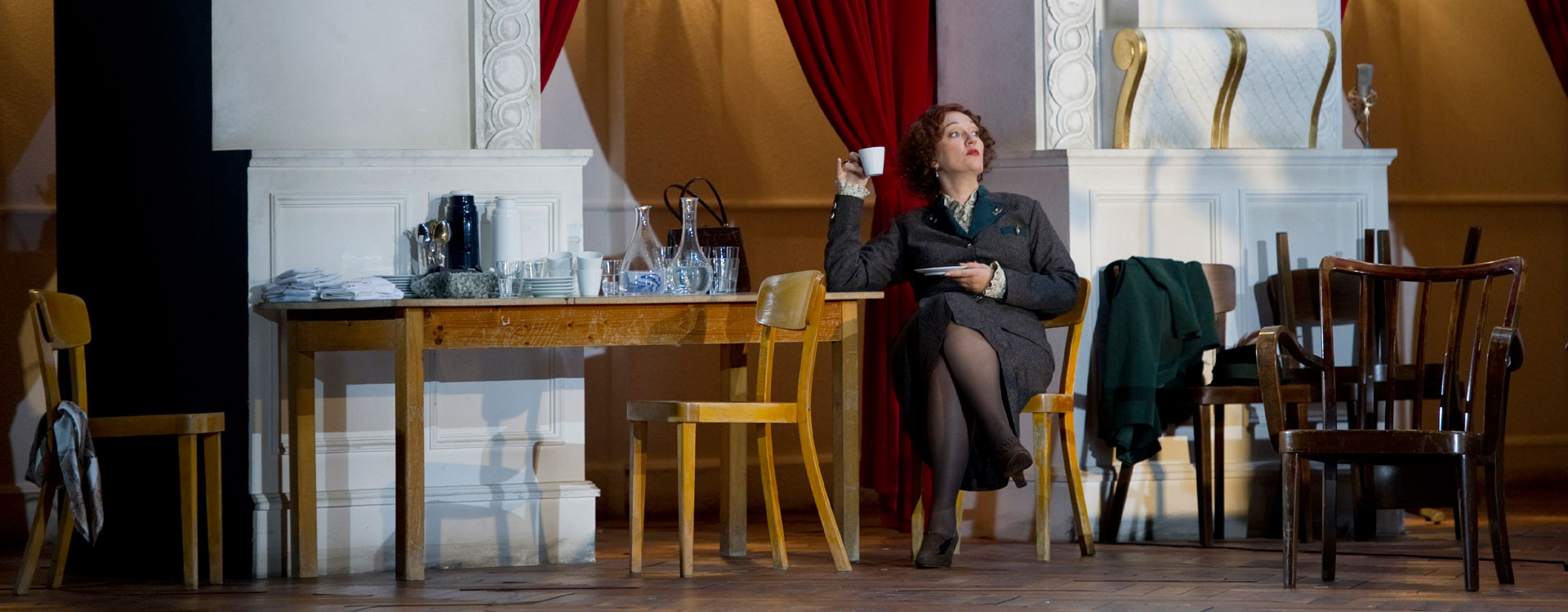
© Moniker Rittershaus / Salzburger Festspiele
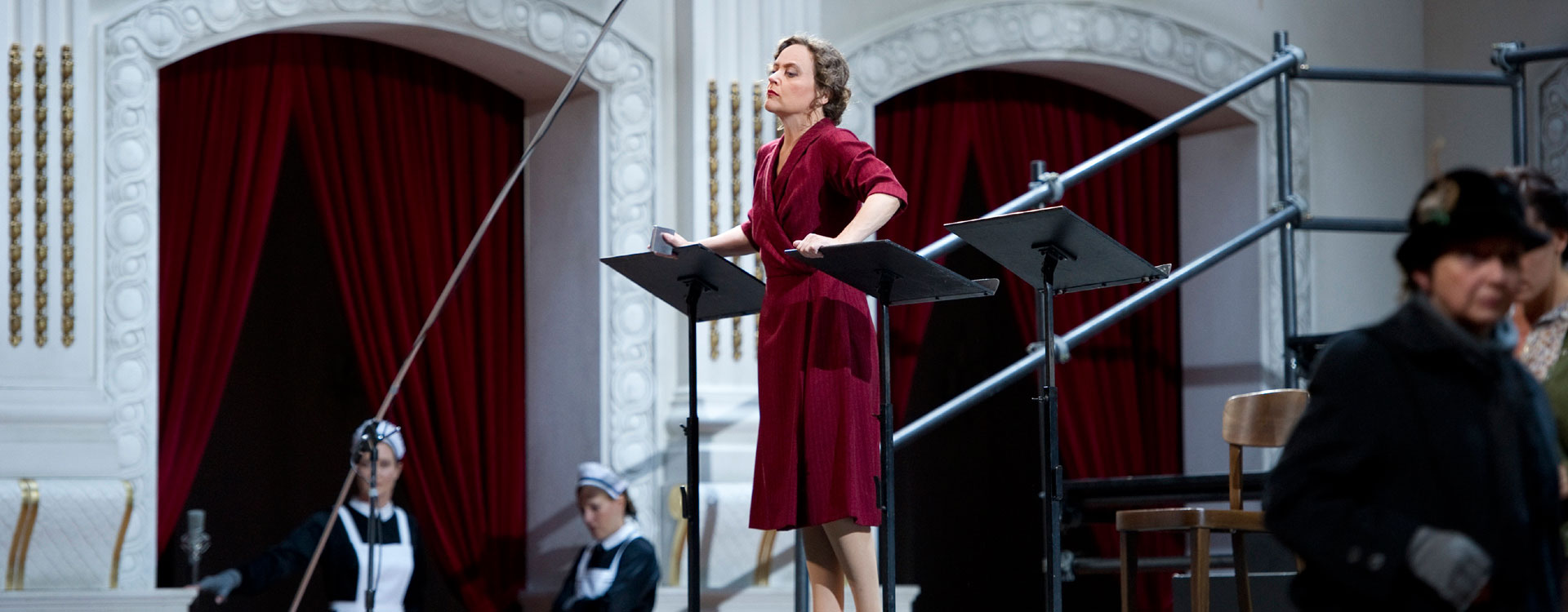
© Moniker Rittershaus / Salzburger Festspiele
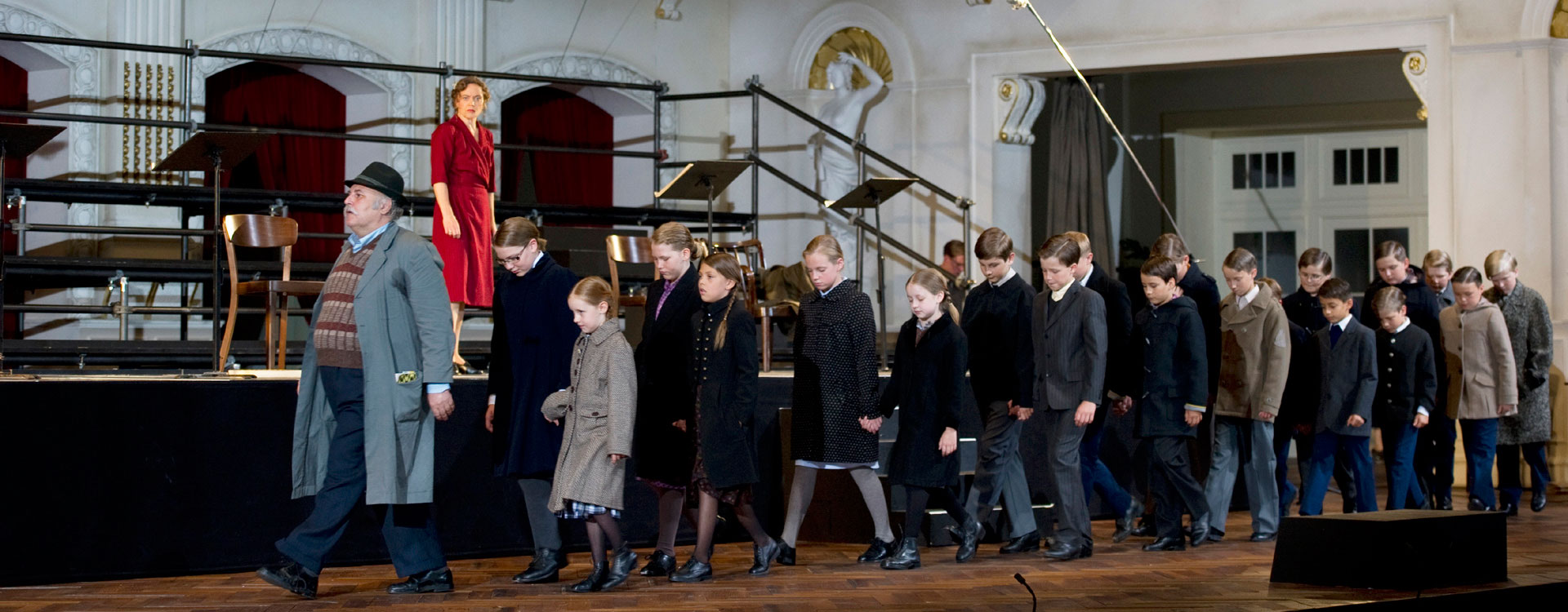
© Moniker Rittershaus / Salzburger Festspiele
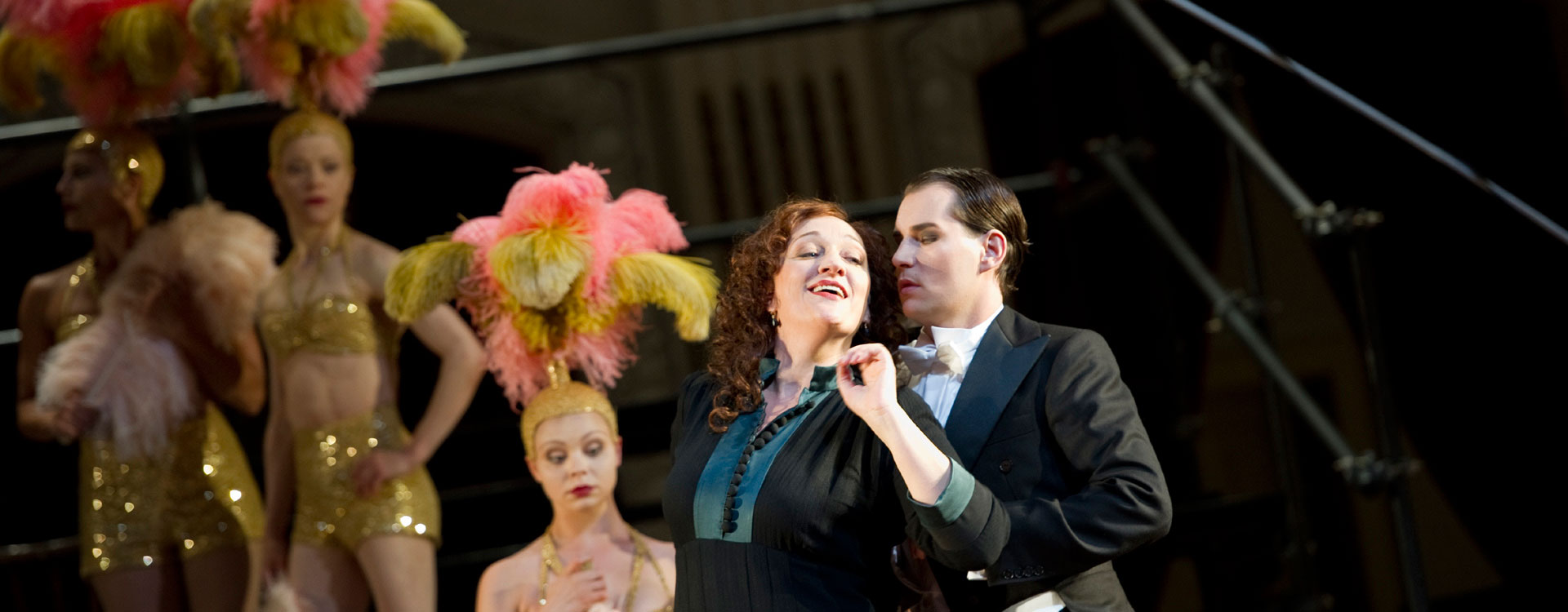
© Moniker Rittershaus / Salzburger Festspiele
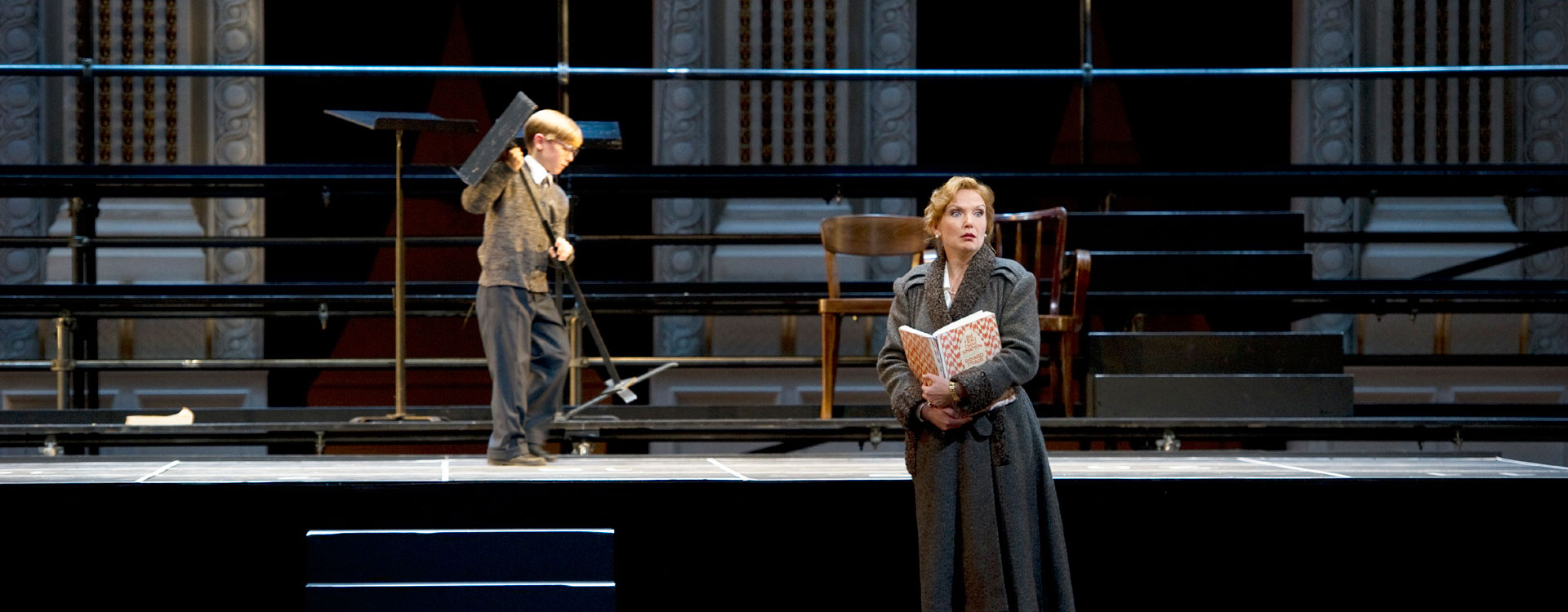
© Moniker Rittershaus / Salzburger Festspiele
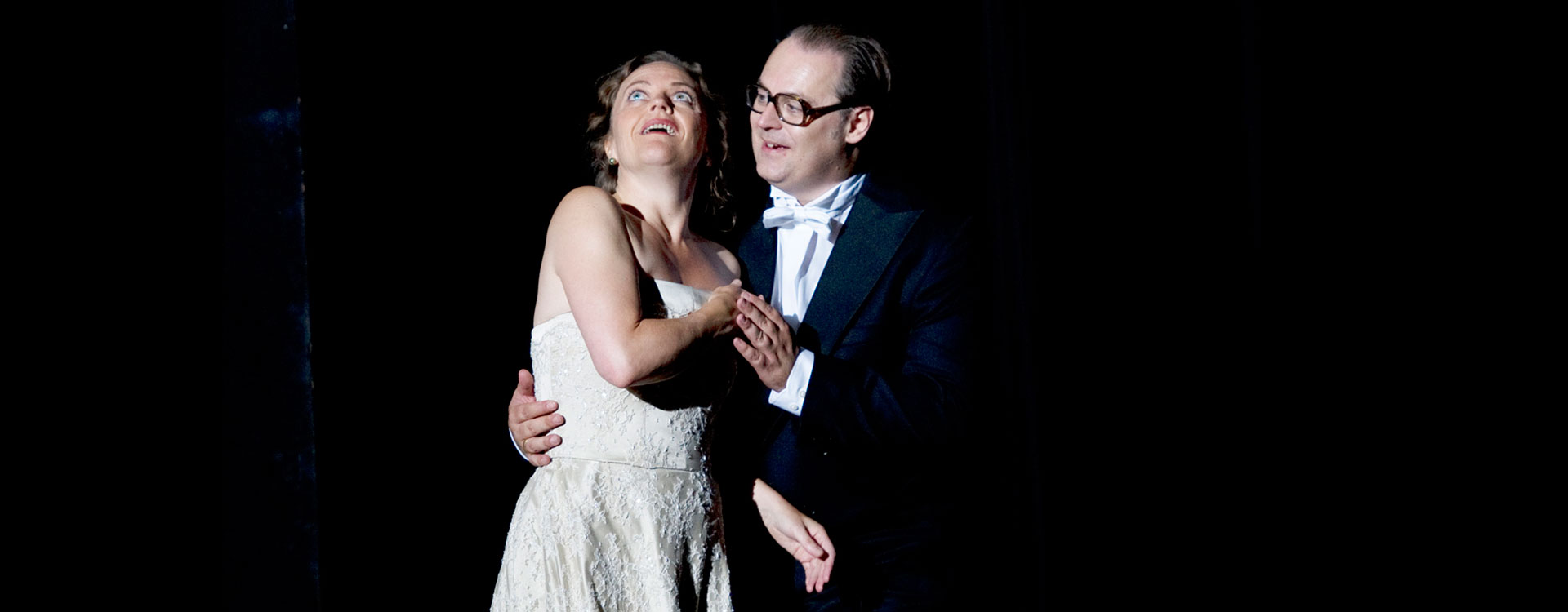
© Moniker Rittershaus / Salzburger Festspiele
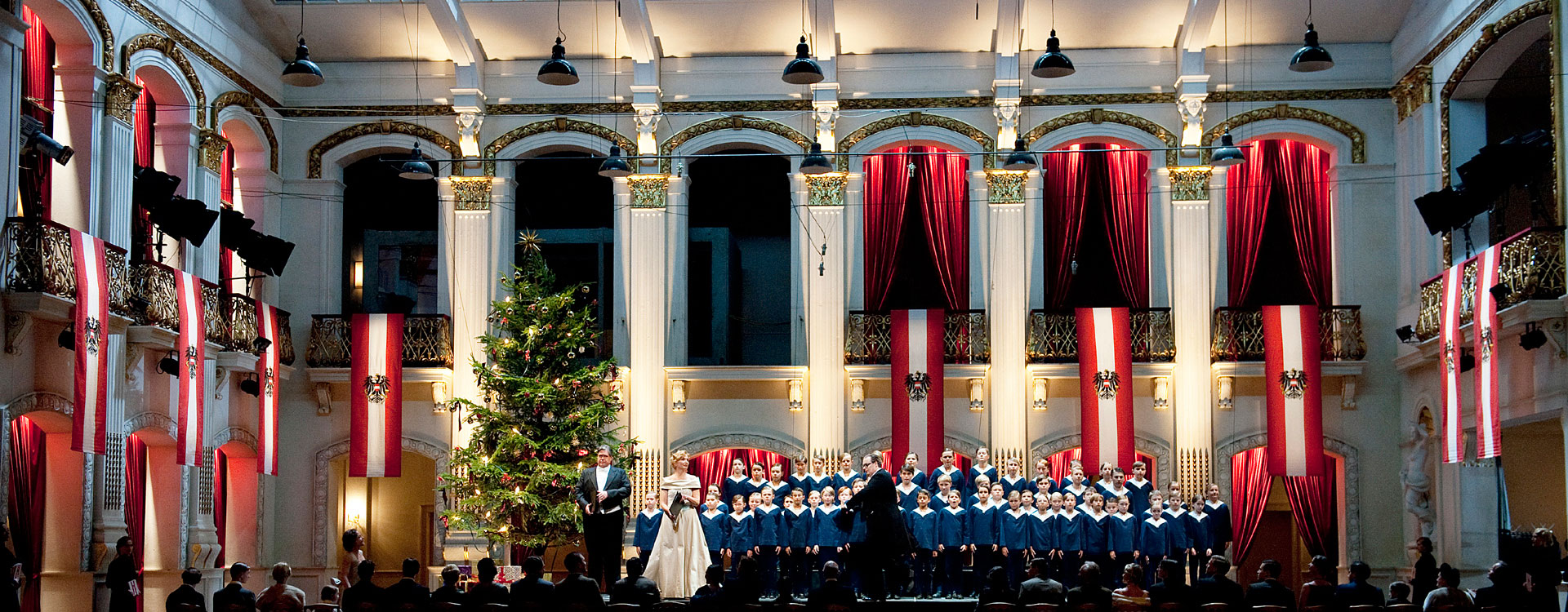
© Moniker Rittershaus / Salzburger Festspiele
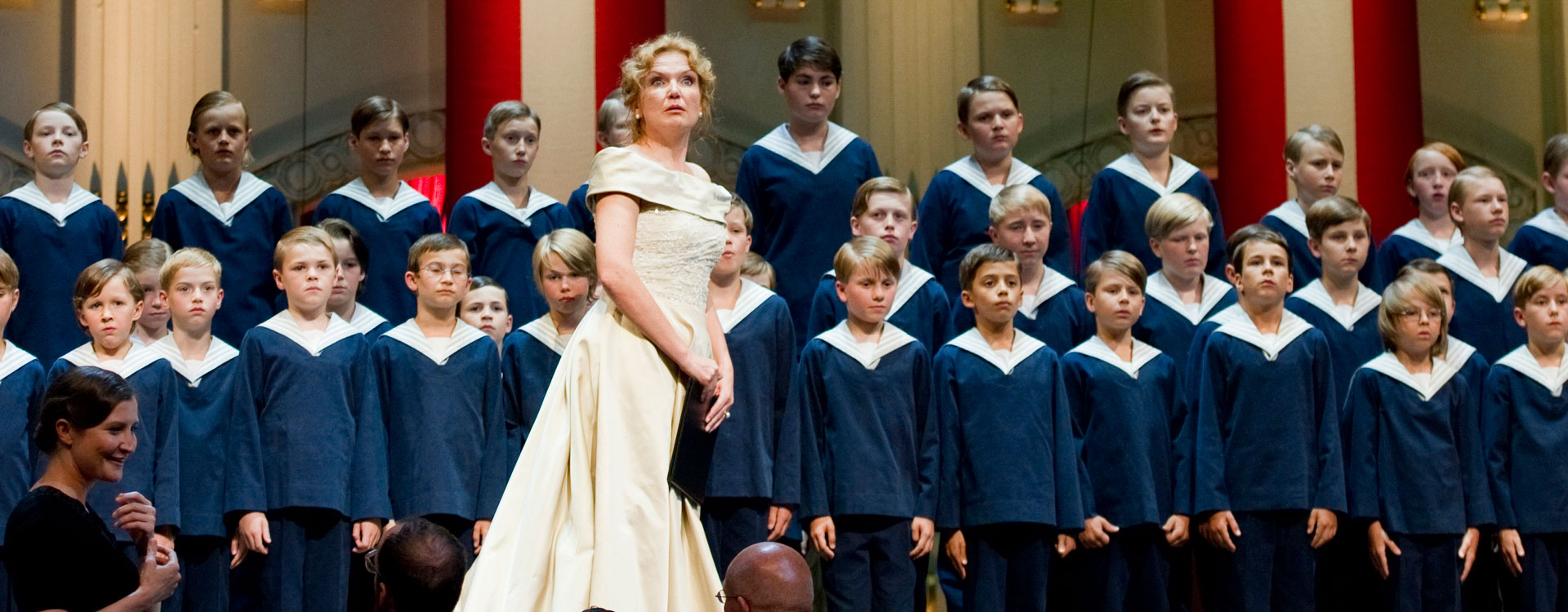
© Moniker Rittershaus / Salzburger Festspiele
Die Frau ohne Schatten
Director: Karina Fiebich
Distributor: C Major Entertainment
Length: 3 h 40 min.
16:9 shot in 1080i HD | stereo & 5.1 surround sound
© 2011, a BFMI production for Unitel in co-production with ORF / 3sat and NHK in cooperation with Salzburg Festival and Classica
Distributor: C Major Entertainment
Length: 3 h 40 min.
16:9 shot in 1080i HD | stereo & 5.1 surround sound
© 2011, a BFMI production for Unitel in co-production with ORF / 3sat and NHK in cooperation with Salzburg Festival and Classica
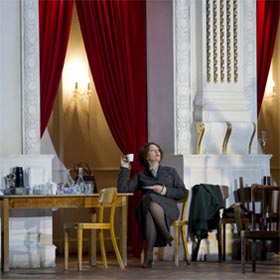
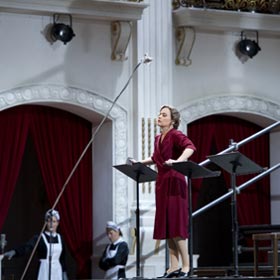
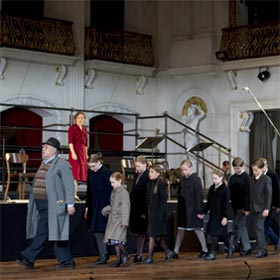
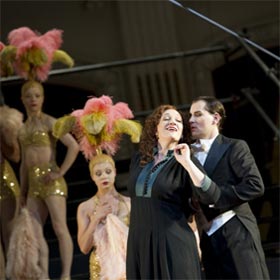
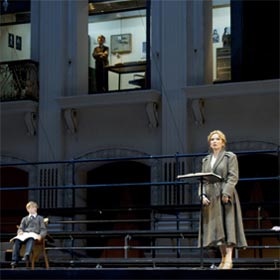
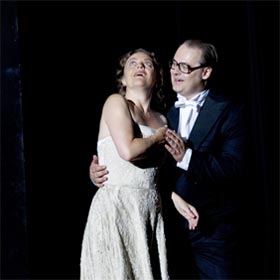
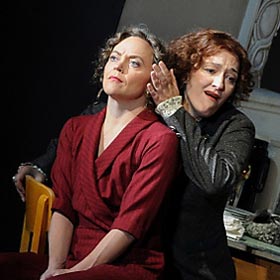
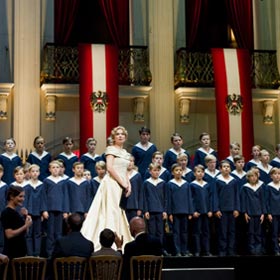
‘Thielemann triumphs!’ (FAZ) One of the highlight’s of Salzburg Festival 2011: Richard Strauss’ opera ‘Die Frau ohne Schatten’ directed by Christof Loy and conducted by Christian Thielemann. The high-class cast, amongst them Anne Schwanewilms as ‘Kaiserin’ and Evelyn Herlitzius as ‘Färberin’, as well as the Vienna Philharmonics were highly acclaimed by critics. Die Frau ohne Schatten is not performed very often because of the demands it makes on casting scenery, and orchestra. Furthermore, on Thielemann’s insistence, this performance is uncut.
Excerpts taken of Jens F. Laurson review, August 30, 2011 for ‘Seen and Heard International’:
[...] One woman — the shadow-less empress — cannot bear children but wants to, in order to become truly human. Another would gladly give up her right (or ability) to bear children in exchange for the alleged liberty that comes with that. Their dramatically rather less relevant men are active bystanders. A Nurse, the Empress’ guardian — and creature of both worlds, the human world of the dyer Barak and his wife and the nether-realm of Emperor and Empress — is the catalyst and nefarious schemer. [...]
Reactionary — old fashioned, counter to our zeitgeist — might be the form of Die Frau ohne Schatten. But the expression itself, of the desire for love, marriage, and family as the nucleus of life, expressed not the least in childbearing, is not reactionary. It does not fit easily into a time dominated by narcissism and ‘self-actualization’ — a time where children are deemed a burden or sacrifice, a manifestation of one’s own ego, or a territorial claim on a woman, an abdication of the fully lived life, rather than its noblest goal and fulfillment. But the desire itself is and will always remain a beautiful thing. [...]
Christof Loy strips away the immediateness of the subject and introduces distance by going the route of opera-performance-within-opera-performance. He sets the story like someone who does not believe in the emotion that lies at the heart of Hofmannsthal’s nostalgia-laced text, except on a superficial level. He describes and circumnavigates the core without feeling or touching it. The narrative is tied to the first complete* recording of Die Frau ohne Schatten with Karl Böhm in the winter of 1955 for Decca. Set (anachronistically) in Vienna’s Sophiensaal, the space for many other very famous Decca opera productions in Vienna, it focuses on the stories of the performing singers. [...]
‘A shining hour, a moment of glory’, trumpeted Vienna’s Kurier after the double premiere of Richard Strauss’ “Die Frau ohne Schatten” at the Salzburg Festival: the premiere of a stunning production, and that of Christian Thielemann as opera conductor at the Salzburg Festival. True to the Salzburg Festival’s tradition, this production features a line-up of great Strauss singers, a ‘high-caliber vocal cast that provides the greatest Strauss bliss’ (Frankfurter Allgemeine Zeitung). Next to the ‘luminous’ (Frankfurter Rundschau) Anne Schwanewilms as the Empress, the ‘masterful’ Stephen Gould as Emperor, and the ‘splendid’ (Die Presse) bass-baritone Wolfgang Koch as Barak, Michaela Schuster and Evelyn Herlitzius as Amme and Barak’s wife ‘raise their figures to genuine protagonists with their dramatic verve’ (Süddeutsche Zeitung).
Anne Schwanewilms, Empress
Stephen Gould, Emperor
Evelyn Herlitzius, Dyer’s Wife
Wolfgang Koch, Barak the Dyer
Michaela Schuster, Nurse
Rachel Frenkel, The Voice of the Falcon Wiener Philharmoniker
Christian Thielemann, conductor
Konzertvereinigung Wiener Staatsopernchor
Thomas Lang, chorus master
Christoph Loy, stage director
Stephen Gould, Emperor
Evelyn Herlitzius, Dyer’s Wife
Wolfgang Koch, Barak the Dyer
Michaela Schuster, Nurse
Rachel Frenkel, The Voice of the Falcon Wiener Philharmoniker
Christian Thielemann, conductor
Konzertvereinigung Wiener Staatsopernchor
Thomas Lang, chorus master
Christoph Loy, stage director
